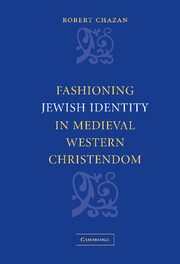Book contents
- Frontmatter
- Contents
- Foreword
- Short titles for frequently cited works
- Introduction
- I BACKDROP
- 1 Jesus and the Jews: the Gospel accounts
- 2 Post-Gospel Christian argumentation: continuities and expansions
- 3 Pre-twelfth-century Jewish argumentation
- II DATA AND FOUNDATIONS
- III JESUS AS MESSIAH
- IV REJECTION OF THE MESSIAH AND REJECTION OF THE JEWS
- V THE MESSIAH HUMAN AND DIVINE
- VI JEWISH POLEMICISTS ON THE ATTACK
- VII UNDERLYING ISSUES
- Bibliography
- Index of subjects and proper names
- Scripture index
3 - Pre-twelfth-century Jewish argumentation
Published online by Cambridge University Press: 22 July 2009
- Frontmatter
- Contents
- Foreword
- Short titles for frequently cited works
- Introduction
- I BACKDROP
- 1 Jesus and the Jews: the Gospel accounts
- 2 Post-Gospel Christian argumentation: continuities and expansions
- 3 Pre-twelfth-century Jewish argumentation
- II DATA AND FOUNDATIONS
- III JESUS AS MESSIAH
- IV REJECTION OF THE MESSIAH AND REJECTION OF THE JEWS
- V THE MESSIAH HUMAN AND DIVINE
- VI JEWISH POLEMICISTS ON THE ATTACK
- VII UNDERLYING ISSUES
- Bibliography
- Index of subjects and proper names
- Scripture index
Summary
Newton's Third Law (“for every action there is an equal and opposite reaction”) would seem to suggest that Jews should have developed an equivalent set of anti-Christian arguments. That, however, is not at all the case. Pre-twelfth-century Jewish tradition is strikingly sparse in its anti-Christian argumentation, contrasting sharply with the richness of Christian anti-Jewish argumentation. The sparseness of Jewish anti-Christian argumentation is in large measure the result of demography. For much of late antiquity and the first half of the Middle Ages, the centers of world Jewish population were located in areas outside Christian population density and social control, where Jews were hardly pressured by Christian argumentation. To be sure, even during this period of relative lack of contact, Christians regularly produced anti-Jewish tracts. As we have noted, Christian Scripture was suffused with anti-Jewish argumentation to a significant extent, and Christian theology had to relate to the issues of Judaism and the Jews. For the Jews, however, there was no such theological compulsion. Jews could read the Hebrew Bible and see it wholly in their own terms; their post-biblical sacred texts – the Mishnah and the two talmuds – contain, as we shall shortly see, no significant concern with Christianity. As we shall see, Jews did develop a set of anti-Christian arguments; these arguments pale, however, in comparison with the rich and multi-faceted anti-Jewish output of the Christian world.
- Type
- Chapter
- Information
- Publisher: Cambridge University PressPrint publication year: 2003



